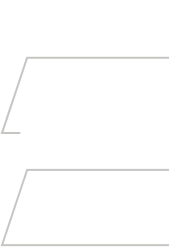Important Information
This website is managed by Ultima Markets’ international entities, and it’s important to emphasise that they are not subject to regulation by the FCA in the UK. Therefore, you must understand that you will not have the FCA’s protection when investing through this website – for example:
- You will not be guaranteed Negative Balance Protection
- You will not be protected by FCA’s leverage restrictions
- You will not have the right to settle disputes via the Financial Ombudsman Service (FOS)
- You will not be protected by Financial Services Compensation Scheme (FSCS)
- Any monies deposited will not be afforded the protection required under the FCA Client Assets Sourcebook. The level of protection for your funds will be determined by the regulations of the relevant local regulator.
Note: UK clients are kindly invited to visit https://www.ultima-markets.co.uk/. Ultima Markets UK expects to begin onboarding UK clients in accordance with FCA regulatory requirements in 2026.
If you would like to proceed and visit this website, you acknowledge and confirm the following:
- 1.The website is owned by Ultima Markets’ international entities and not by Ultima Markets UK Ltd, which is regulated by the FCA.
- 2.Ultima Markets Limited, or any of the Ultima Markets international entities, are neither based in the UK nor licensed by the FCA.
- 3.You are accessing the website at your own initiative and have not been solicited by Ultima Markets Limited in any way.
- 4.Investing through this website does not grant you the protections provided by the FCA.
- 5.Should you choose to invest through this website or with any of the international Ultima Markets entities, you will be subject to the rules and regulations of the relevant international regulatory authorities, not the FCA.
Ultima Markets wants to make it clear that we are duly licensed and authorised to offer the services and financial derivative products listed on our website. Individuals accessing this website and registering a trading account do so entirely of their own volition and without prior solicitation.
By confirming your decision to proceed with entering the website, you hereby affirm that this decision was solely initiated by you, and no solicitation has been made by any Ultima Markets entity.
I confirm my intention to proceed and enter this website Please direct me to the website operated by Ultima Markets , regulated by the FCA in the United Kingdom
Ultima Markets App
Trade Anytime, Anywhere
Join now to get a taste of the ultimate experience. Take off with 4 simple steps:
-
01
Open
A live account and get verified. -
02
Deposit
To your account through any of our supported deposit methods. -
03
Get Access
To hundreds of products and start trading. -
04
Withdraw
Your funds conveniently through any of our supported withdrawal methods.
Frequently Asked Questions
-
1.What is commodity trading?
Commodity trading involves buying and selling raw materials like gold, crude oil, silver, and natural gas. With commodity CFDs (Contracts for Difference), traders can speculate on the price movement of these assets without owning the physical product. Commodity trading is popular for portfolio diversification and allows traders to profit from both rising and falling markets.
-
2.What are the commodity trading times?
Commodity trading hours depend on the specific commodity and the platform it’s listed on. For example, gold and silver CFDs are typically traded nearly 24 hours a day, Monday to Friday. Crude oil CFDs follow the NYMEX schedule, which operates from Sunday evening to Friday evening (with short breaks). Always check your broker’s platform for exact trading times based on the instrument.
-
3.What can be traded in a commodities market?
In the commodities market, you can trade various assets including precious metals (like gold, silver, and platinum), energy commodities (such as crude oil and natural gas), and agricultural products (like coffee, wheat, and soybeans). Through CFD trading, you can access global commodity markets with low capital and flexible leverage, all without physical delivery.
-
4.How to trade gold?
To trade gold, you can use gold CFDs, which let you speculate on gold price movements without owning physical bullion. Start by choosing a regulated broker, open and fund a trading account, and select XAU/USD or gold spot CFDs. Use technical analysis, economic news (like inflation or interest rate decisions), and risk management tools like stop-loss orders. Gold is a safe haven asset and is often used to hedge against market uncertainty.
-
5.How to trade crude oil?
Trading crude oil involves speculating on oil price fluctuations using WTI or Brent oil CFDs. After opening an account with a CFD broker, select a crude oil instrument and decide whether to go long (buy) or short (sell) based on market trends, geopolitical factors, or inventory reports. Crude oil is known for its high volatility, making it attractive to day traders and swing traders.
-
6.What affects gold prices?
Gold prices are influenced by several factors including inflation, interest rates, central bank policies, geopolitical tensions, and the strength of the US dollar. When uncertainty in the market rises, demand for gold typically increases, making it a reliable indicator of global sentiment.
-
7.Is commodity trading profitable?
Yes, commodity trading can be profitable if done with proper strategy and risk management. Commodities like gold, oil, and silver often show strong price movements, providing opportunities for short-term and long-term profits. However, factors like leverage, market volatility, and global events mean that losses are also possible—so education and discipline are key to success.
Commodity trading involves buying and selling raw materials like gold, crude oil, silver, and natural gas. With commodity CFDs (Contracts for Difference), traders can speculate on the price movement of these assets without owning the physical product. Commodity trading is popular for portfolio diversification and allows traders to profit from both rising and falling markets.
Commodity trading hours depend on the specific commodity and the platform it’s listed on. For example, gold and silver CFDs are typically traded nearly 24 hours a day, Monday to Friday. Crude oil CFDs follow the NYMEX schedule, which operates from Sunday evening to Friday evening (with short breaks). Always check your broker’s platform for exact trading times based on the instrument.
In the commodities market, you can trade various assets including precious metals (like gold, silver, and platinum), energy commodities (such as crude oil and natural gas), and agricultural products (like coffee, wheat, and soybeans). Through CFD trading, you can access global commodity markets with low capital and flexible leverage, all without physical delivery.
To trade gold, you can use gold CFDs, which let you speculate on gold price movements without owning physical bullion. Start by choosing a regulated broker, open and fund a trading account, and select XAU/USD or gold spot CFDs. Use technical analysis, economic news (like inflation or interest rate decisions), and risk management tools like stop-loss orders. Gold is a safe haven asset and is often used to hedge against market uncertainty.
Trading crude oil involves speculating on oil price fluctuations using WTI or Brent oil CFDs. After opening an account with a CFD broker, select a crude oil instrument and decide whether to go long (buy) or short (sell) based on market trends, geopolitical factors, or inventory reports. Crude oil is known for its high volatility, making it attractive to day traders and swing traders.
Gold prices are influenced by several factors including inflation, interest rates, central bank policies, geopolitical tensions, and the strength of the US dollar. When uncertainty in the market rises, demand for gold typically increases, making it a reliable indicator of global sentiment.
Yes, commodity trading can be profitable if done with proper strategy and risk management. Commodities like gold, oil, and silver often show strong price movements, providing opportunities for short-term and long-term profits. However, factors like leverage, market volatility, and global events mean that losses are also possible—so education and discipline are key to success.

Learning while
trading with us.
Sharpen your understanding of trading with market news highlights, expert analysis, and other educational features.









